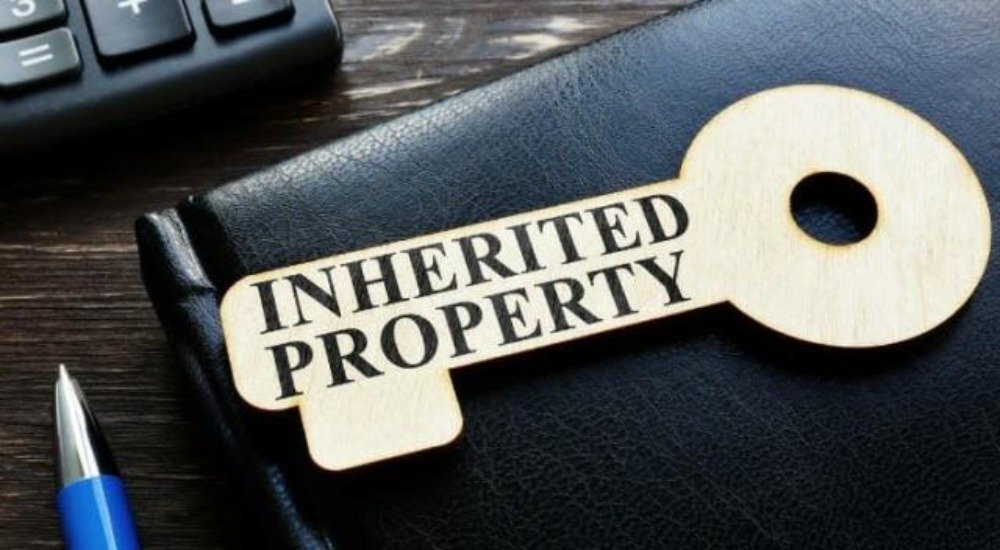Inheritance is a very common occurrence in the UK and that means that many people are receiving property as an inheritance. However, there is one caveat to this – when someone inherits property, they are responsible for paying capital gains tax on the value of the property they receive. This can be a headache if you’re not aware of how it works, but luckily this article is here to help!
What is Capital Gains Tax?
When someone inherits money or property, they may be liable for Capital Gains Tax (CGT). CGT is a tax on the profit from the sale of assets. This includes any money you make from the sale of your property, as well as the money you inherit.
CGT is usually calculated on the marginal gain (the increase in your net worth throughout the sale). The higher your marginal gain, the more you’ll pay in CGT.
There are a few things to keep in mind when filing CGT:
– The profits from your inherited property must have been generated since the death of the person who gifted it to you. If the property was left to you before they died, you don’t have to worry about CGT.
– You may be able to exclude some of your inherited assets from the CGT calculation. This includes assets that are used for personal use (such as a car), assets that were transferred in a will or intestate succession (if you are the sole beneficiary), and assets that are held in a trust for someone other than yourself.
Why do you have to pay Capital Gains Tax?
Inherited assets are anything that you inherit, whether it is money, property, or a business. If you are the sole owner of the inherited asset, you don’t have to pay any capital gains tax on the value of the asset when you pass it on to your children. However, if you are part of a co-ownership structure, you may have to pay capital gains tax on the value of the asset when you pass it on.

The Capital Gains Tax Act 1992 states that any gain made on an inherited asset is taxable. This means that if the value of the asset increases by more than the amount of any losses that were carried forward from previous years, then you will have to pay capital gains tax on that increase. The tax rate for capital gains varies depending on how long you have owned the asset and what your income level is. For most people, the tax rate is 20%. However, there are some exceptions – for example, people who receive Social Security benefits might not have to pay any capital gains tax at all.
If you are unsure about whether you have to pay capital gains tax on an inheritance, it is best to speak to a tax adviser.
Also Read: What You Should Know Before Buying Home Insurance
How do I avoid paying Inheritance Tax on Inherited Property?
If you inherit property and sell it within a year, you will likely have to pay capital gains tax (CGT). The CGT rate for assets held for over one year is 20%. However, there are some exceptions to this rule. If you inherit property and plan to use it for your use, you don’t have to pay CGT. You can also avoid paying inheritance tax if the property is transferred as part of a marriage settlement or when a relative dies intestate (without leaving any heirs).
To avoid paying, it is important to keep accurate records of all transactions involving the inherited property. You should also speak to an independent financial adviser who can advise on the best way to structure the sale to minimize tax exposure.
How much Capital Gains Tax should I expect to pay?
If you are the owner of a property that has increased in value since you acquired it, you may be liable for Capital Gains Tax (CGT). To avoid incurring CGT liability, it is important to know how much your property has increased in value and calculate the appropriate tax.
At Matters Estate Agency we understand that calculating Capital Gains Tax can be difficult and this is why we offer a free CGT advice service. If you need help with any aspect of CGT, please do not hesitate to contact our team. We would be happy to offer you a free consultation and provide you with all the information you need to make an informed decision about your tax liability.
Who has to pay Capital Gains Tax?
Everyone who has an interest in an asset that has increased in value since the date of acquisition (the “asset”) will have to pay capital gains tax on any increase in value above the original cost of the asset. This includes people who are not ordinarily resident in the UK and people who are resident in the UK but have a foreign address.
There are a few exceptions to this rule, but they are rather narrow and only apply to assets that are classed as “portfolio investments”. These portfolio investments include things like shares, units in mutual funds, and bonds.
If you are a UK resident, you will only have to pay capital gains tax on the increase in value of assets that you own directly. This means that you will not have to pay capital gains tax on the increase in the value of assets that you hold through a company or trust that you control.
The main thing to remember is that if you have any interest in an asset that has increased in value since the date of acquisition, you will need to pay capital gains tax on any increase in value above the original cost of the asset.
Conclusion
For estates worth more than $5.5 million, however, there are a variety of options available, including filing a tax return and claiming exemptions or deductions based on specific factors such as the type of asset purchased or the length of time owned. Overall, though filing inherited capital gains taxes may be difficult, it is important to speak with an estate planning lawyer to get a full understanding of your specific situation.













